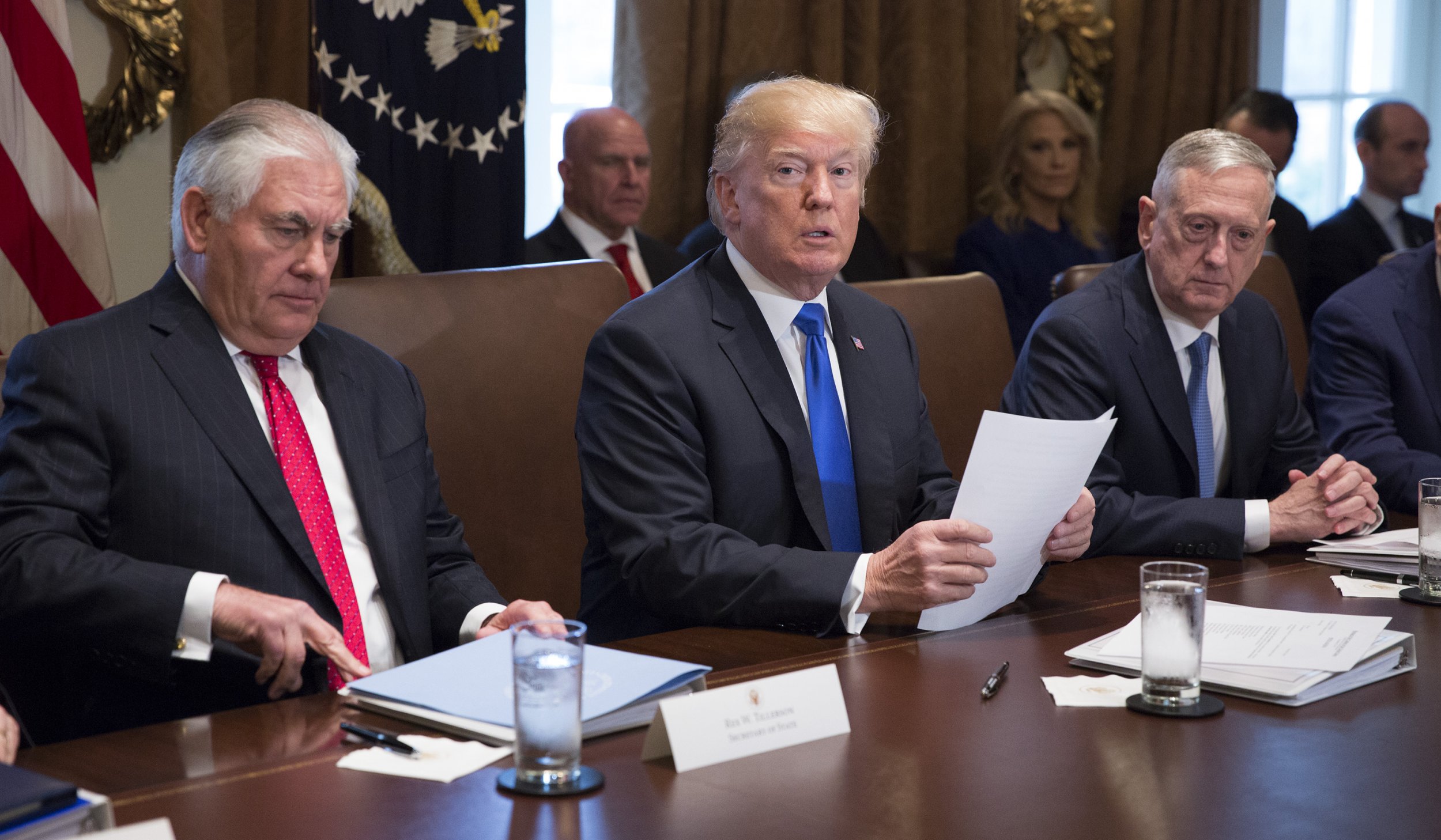
When President Donald Trump celebrated the repeal of the Obamacare individual mandate included in the congressional tax package, he declared it officially "repealed," checking off a long-awaited campaign promise to remove the 2010 Affordable Care Act. But the Affordable Care Act still remains available to Americans, and states are continuing to enroll citizens in the program.
"When the individual mandate is being repealed, that means Obamacare is being repealed because they get their money from the individual mandate," Trump said during a Cabinet meeting at the White House.
The individual mandate portion of the Affordable Care Act required Americans to buy at least a basic level of health insurance, or else they would have to pay a penalty. In the tax bill approved by Congress on Wednesday, a small provision removes that requirement. Trump has referred to the mandate as "terrible" and "unfair and unpopular" in his efforts to end his predecessor's law, often called "Obamacare."
For now, the Affordable Care Act remains an option for Americans, but Republicans removed the requirement that kept some healthy Americans in the insurance market, starting in 2019. As Trump chips away at the program, the ACA hobbles along, aided by that states have extended open enrollment in the program and invested state money in advertising the public option as Trump weakens the program and pulls money from it.
The states that extended deadlines for enrolling in the Affordable Care act are California, Colorado, Connecticut, Florida, Maryland, Massachusetts, Minnesota, New York, Rhode Island, Washington and Washington, D.C.
The Congressional Budget Office estimated that 13 million people would likely be without insurance after the mandate was repealed, saving $338 billion in federal health insurance subsidy payments over the following decade. The tax bill passed Wednesday is about one-quarter the size of what Trump initially promised, the Tax Policy Center says.
The bill provides tax cuts on the top income tax rate and the alternative minimum tax, which ensures that America's richest pay at least some set amount of taxes each year. This legislation lowers taxes for middle-income earners, as well, but only by about 10 percent and only for eight years. The cuts are slated to expire in 2025.
"We broke every record," Trump said in the statement after announcing its passage. "It's the largest tax cut in the history of our country."
Uncommon Knowledge
Newsweek is committed to challenging conventional wisdom and finding connections in the search for common ground.
Newsweek is committed to challenging conventional wisdom and finding connections in the search for common ground.
About the writer
Linley Sanders is a staff writer for Newsweek covering breaking news, politics and legislative policy. You can catch her bylines ... Read more
To read how Newsweek uses AI as a newsroom tool, Click here.








